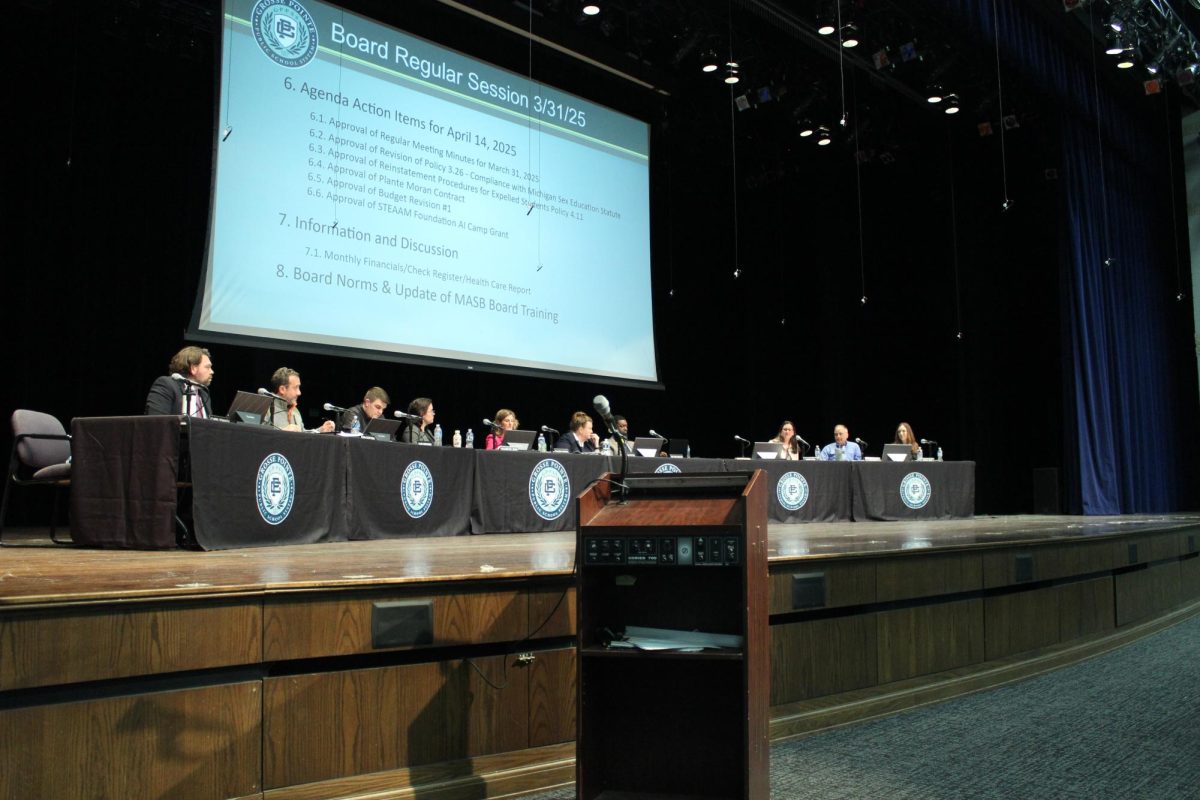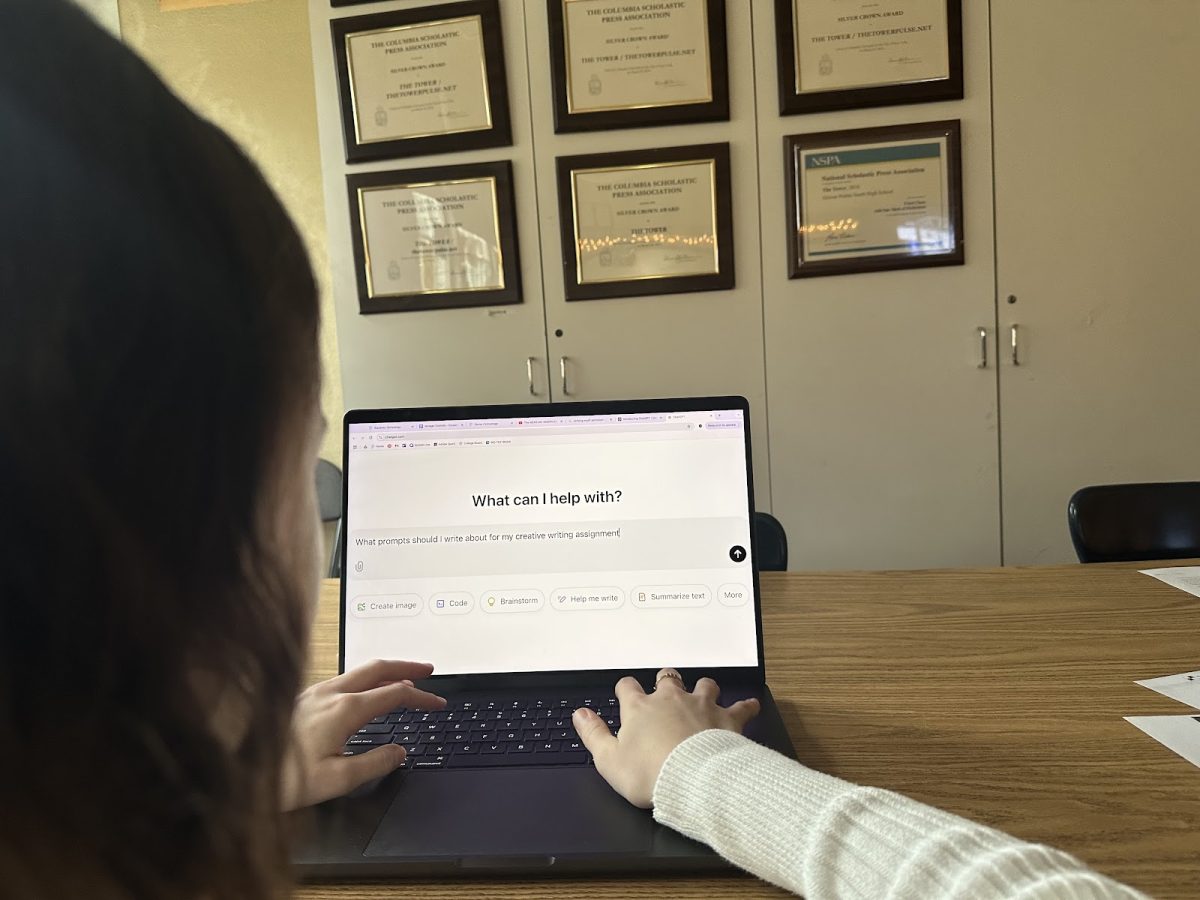Over the last 10 years, technology has advanced tremendously. While creating major improvements, it has also created setbacks for school systems. Artificial intelligence (AI), has become a crutch for many students and has begun to take creativity out of free-thinking assignments; such as, the Advanced Placement Language’s “Divergent Thinking” essay.
English teachers at South have seen declines in effort and creativity as the years have gone by. Rather than being angry at students for not coming up with their own topic for the essay, English teachers such as Sandra McCue, have begun to feel sad that students don’t have enough confidence in their own abilities.
“I think that students are really less creative, but I think that there is a confidence issue as well,” McCue said. “It scares them to have assignments that are more subjective, it’s a little like, ‘how do you tell if something is creative or not? That’s scary.”
While having to complete part of the Divergent Thinking essay at home, the risk of internet influence increases. However, not every student is intimidated by the essay’s prompt. For some, having an assignment such as this can be a release from the strictly structured school life, and allows for a break from it. Amy Ezop ‘25 wrote the essay based on her own independent creativity, and not a robot’s, unlike some of her peers.
“I used some of the example essays to get me started, and then from there I used my own words,” Ezop said. “I liked the assignment, but I know others that didn’t and used ChatGPT for guidance. I put in a lot of effort, and sometimes they get a better grade than me, which sucks.”
With the amount of students that depend on AI to give them good ideas, or even write the essay for them, a recent concern has emerged regarding if the assignment should even be continued. But with students like Ezop at South, there is hope for the future of the assignment, and South’s creativity. According to Ericka Henk, the essay is important among her students, despite some being tempted by AI.
“Instead of using their imagination, it’s so easy for [students] to reach for their phones,” Henk said. “I want students to come up with their own ideas rather than Googling them and using other people’s.”
Although technology will always be tempting for students, exercising creativity in classrooms is extremely important, and hopefully will not be overpowered by it in the future. English teachers at South are hopeful and excited for the essay to continue and allow students to express themselves.
“It’s a struggle, but I think having assignments that allow for a creative outlet are important, so I am going to keep doing it and try to find ways to keep it as authentic as possible,” McCue said.











































































